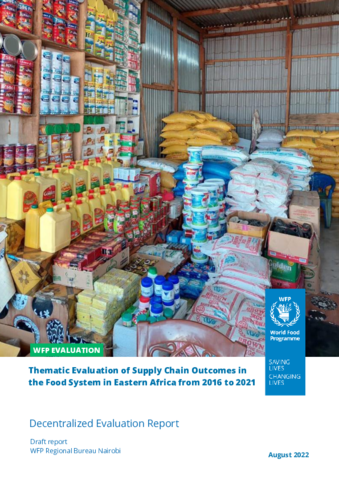
The objective is to identify and assess the nature and extent of the effects of supply chain activities on food systems and their components, to differentiate effects according to gender or other groups, and thereby to make recommendations to improve future interventions.
The subject of this thematic evaluation is the wide range of supply chain activities implemented by procurement and logistics teams in collaboration with programmes within WFP RBN. As a thematic evaluation, this exercise cuts across that range of activities and focuses on the relevance, results, and factors affecting outcomes in the cross-cutting area of food systems of WFP supply chain activities.
Another key aspect is to understand how outcomes may have varied according to specific groups of stakeholders, particularly women, who may make the most substantial contribution to production but are less well represented in the downstream commercial aspects of the supply chain.
The evaluation covers all nine Country Offices supported by WFP RBN, including three country case studies (Kenya, Somalia and South Sudan) from January 2016 to December 2021.
Key recommendations include:
Recommendation 1. Enhance Inclusiveness in Procurement and Distribution by promoting high levels of stakeholder participation in order to maximise the competitiveness of food systems.
Recommendation 2. Mainstreaming infrastructural development and in particular the rehabilitation of trunk roads, feeder roads, rail, and waterways as a component of market development.
Recommendation 3: Adoption at Country Office level of data collection and management systems specifically to monitor changes in food systems
Recommendation 4: Strengthen post-harvest loss reduction activities
Recommendation 5: Regular estimation of the carbon footprint of WFP distribution exercises
